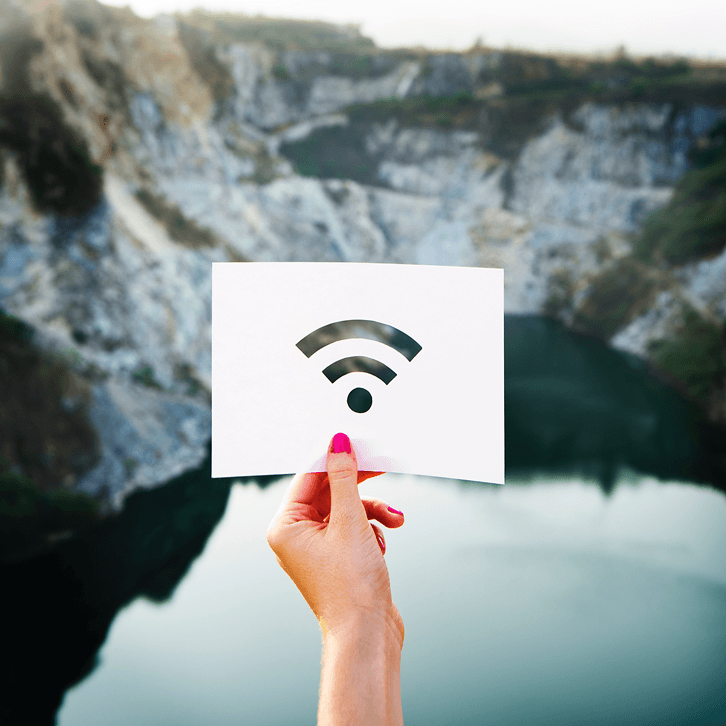
If your Netflix connection breaks during heavy rains, do you blame bad weather for it? It is very possible for this to happen. Weather can affect the performance of your Internet connection in many ways. This can include issues such as physical damage to the network, water ingress into electrical connections, and wireless signal interference.
Some types of connections are more sensitive to the weather than others. The behavior of other humans in response to the weather can also have an effect on your Internet connection.
How Rain Can Affect Your Internet Connection
Internet connections are far more complex than the routers and cables in our homes. There are many networking devices, cables and connections between our homes and the websites we are browsing.
An Internet connection can include a variety of physical links, including the copper wiring used in older phone networks and more modern fiber-optic connections. This can also include wireless connections, such as WiFi, microwave and satellite radio.
Rain can cause physical damage to cables, especially where telecom networks are using the old infrastructure. ADSL-style connections, which use older phone networks, are particularly vulnerable to this type of interference. Although many Australians may be connected to the National Broadband Network (NBN), it may still be associated with pre-existing copper wires (“fiber to the home”) compared to a modern optical fiber (“fiber to the home”) node” or “Fiber to the cabinet” connection).
Most of the Internet’s cabling is underground, so if flooding occurs, moisture can reach the cables or their connectors. This can significantly interfere with or even block signals significantly by reducing bandwidth or causing electrical short-circuits. But it is not just your home connection that can be affected. Wireless signals outside the home or building can be affected by rain as water droplets can partially absorb the signal, resulting in reduced coverage levels.
Its effect can be felt even after the rain has stopped. High humidity can continue to affect wireless signal strength and cause slow connection speeds.
Copper Cables and Changed Behavior
If you are using ADSL or NBN for your Internet connection, copper phone cables were likely used in part. These cables were designed to carry sound signals rather than data, and are now over 35 years old on average. Only 18% of Australian households have a faster and more reliable optical fiber connection.
There is also a behavioral factor. When it rains, more people may decide to stay indoors or work from home. This inevitably leads to an increase in network usage. When a large number of people increase their Internet usage, the limited available bandwidth is rapidly consumed, resulting in a marked slowdown in signaling. This doesn’t only happen within your home, but the network gets burdened even further as your traffic gets added to the traffic of other homes and eventually entire cities and countries.
Heat waves and Strong Winds
In Australia, extreme cold is usually not a big concern. Heat is probably a more common problem. Our networking equipment is prone to slow down when exposed to extreme heat. There may even be damage to the cable which can affect the connection.
Imagine that your computer fan isn’t running and the device is overheating-it will eventually go bad. While the device may be fine on its own, there is likely a power supply interruption. The same problem can affect the networking devices that control our Internet connection.
Satellite Internet services for rural users can be vulnerable during inclement weather, as satellite signals have to travel long distances in the air.
Radio signals are usually not affected by wind, but strong winds can cause hardware such as satellite dishes to spin, vibrate, move from the position, or fly in high winds.
Most of the time, human behavior is the main reason, for most users, the effect of rain will be minor – unless they’re physically affected by a significant issue like a submerged cable, or they’re trying to use WiFi outside during a storm. Have been So, can the weather affect your internet connection? Absolutely. Will most users be affected? is unlikely.
Now if your favorite Netflix show is running slow during the rainy season, it’s more likely that the behavior of other humans is to blame.
